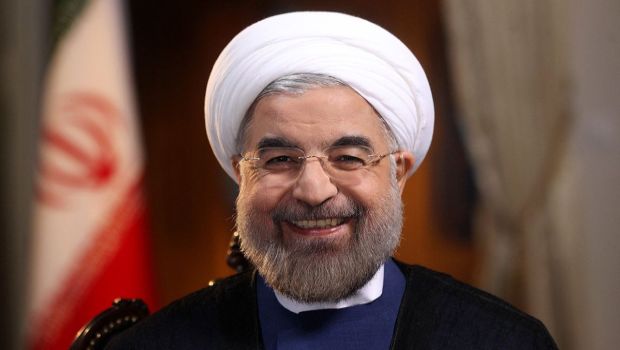
Iranian president Hassan Rouhani smiles during an interview with Ann Curry from the US television network NBC in Tehran, in this picture taken September 18, 2013, and provided by the Iranian Presidency. (Reuters/President.ir/Handout via Reuters)
“We will try to make the voice and message of the Iranian nation heard by the world, and say that the Iranian nation is opposed to any violence and extremism, particularly in the name of our religion, that we see in today’s world,” the semi-official ISNA news agency reported Rouhani as saying on Monday in Tehran.
The Iranian president added that the Iranian nation, itself a victim of weapons of mass destruction during the Iran–Iraq War of 1980–1988, has never wanted to access or use such weapons.
“The Iranian nation is considered a center of stability in the region and has always sought peace,” Rouhani added.
The Iranian president will address the General Assembly today, September 24. On Wednesday, he will give a speech to a session of the nuclear disarmament committee, in his capacity as the current chairman of the Non-Aligned Movement.
This will be Rouhani’s first time attending the UN General Assembly. He is expected to meet with many heads of state and other world leaders, including French president François Hollande.
Hollande’s office announced on Friday that the meeting, which is scheduled for today (September 24), will focus on the Syrian crisis and Iran’s nuclear program.
“What we want to see is an Iran fully engaged, like other players, in the search for a real political transition in Syria,” said an aide to the French president.
Many sources in both Iran and the United States are speculating about the possibility of an informal—and unprecedented—meeting between the presidents of the two countries, amid signs that Tehran is seeking to moderate its foreign policy and seek a thaw in relations with the outside world.
The White House has confirmed that a “personal encounter” between Barack Obama and Hassan Rouhani is a real possibility at the General Assembly, which is scheduled to run until October 1.
On Friday, an advisor to the US president said that Washington is “always open to diplomacy.”
“The fact of the matter is we don’t have a meeting scheduled with President Rouhani, but we’re always open to diplomacy if we believe it can advance our objectives, and in this instance our objective is an Iran that meets its international obligations,” said Ben Rhodes, a deputy national security adviser at the White House.
“The issues between the United States and Iran are not ones that would be settled with one discussion,” he added.
On Thursday, White House spokesman Jay Carney said a meeting between the two presidents was possible, though one was not scheduled.
When Obama first ran for president in 2008, he said he would hold direct negotiations with Iran under certain conditions.
The potential meeting, which would be a first since the Islamic Revolution in 1979, would be a symbolic but substantial step towards improving relations between the US and Iran.
In an article published in the Washington Post on Friday, Rouhani called for “constructive interaction with the world.”
Using a language that differed clearly with that of his predecessor, Mahmoud Ahmadinejad, he wrote: “Gone is the age of blood feuds. . . . A constructive approach to diplomacy . . . means engaging with one’s counterparts.”
